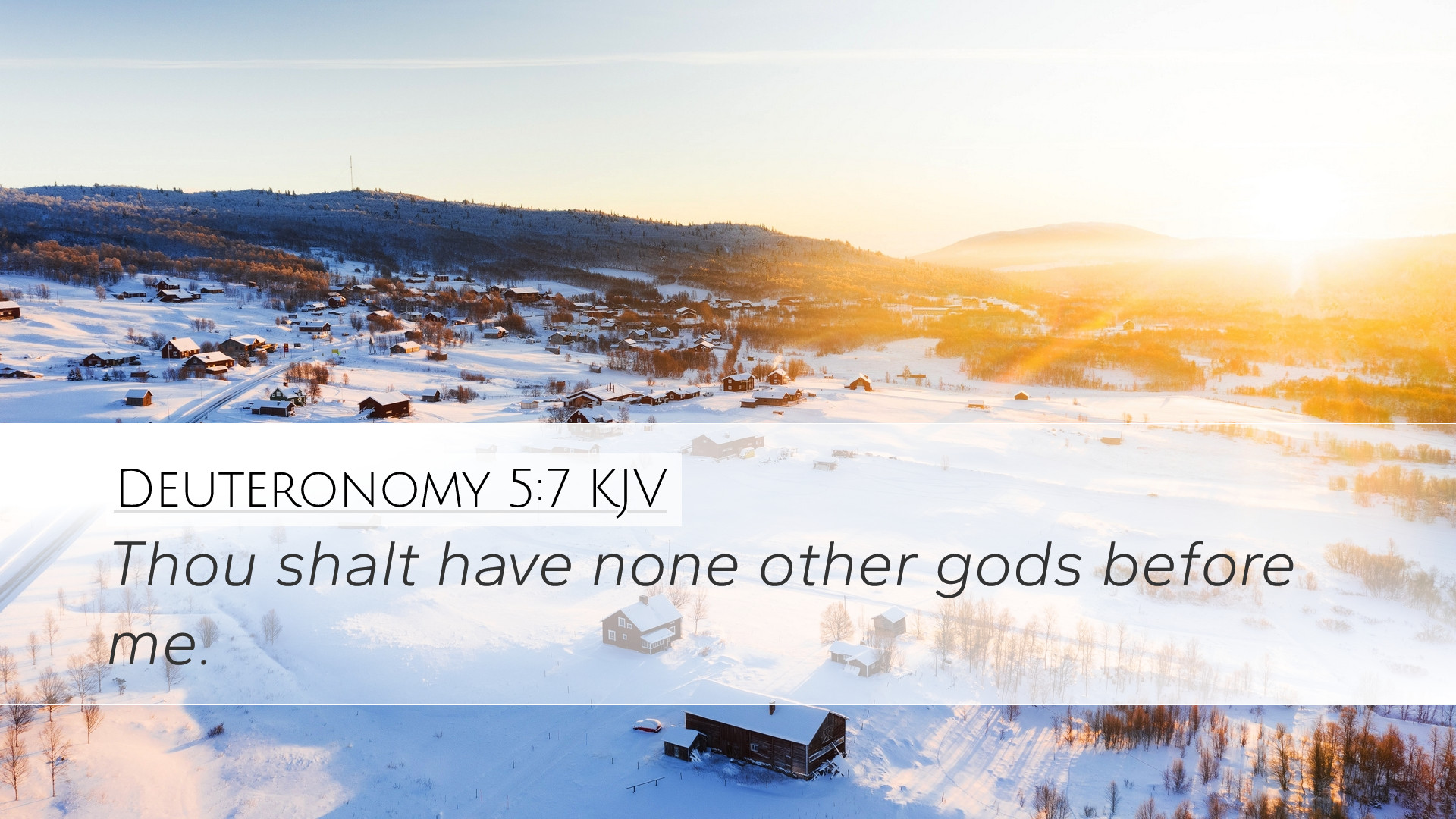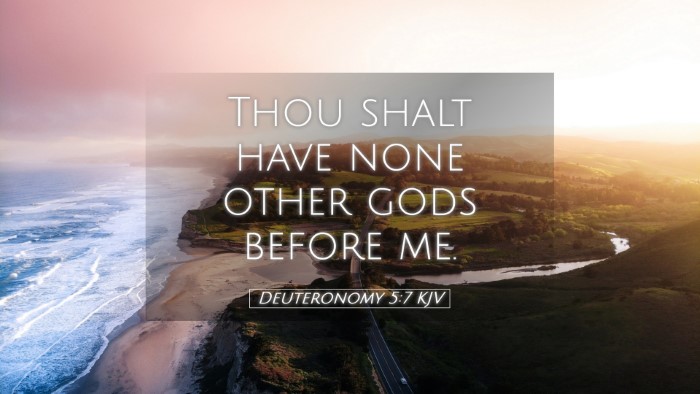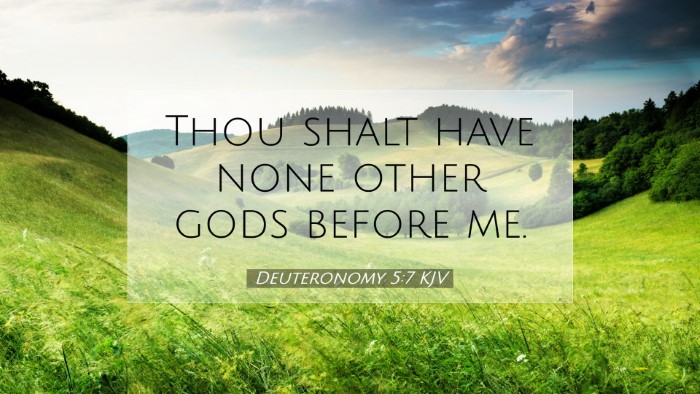Deuteronomy 5:7 – Summary of Commentary
Bible Verse: "Thou shalt have none other gods before me." (Deuteronomy 5:7)
This single verse encapsulates the essence of Israel's covenant relationship with Yahweh. It stands as the first commandment and is foundational to the moral and spiritual life of the Hebrew people. The instruction is both a prohibition and an affirmation, presenting a clear directive that establishes monotheism as central to their faith.
1. Context and Importance
In the context of Deuteronomy, Moses speaks to the Israelites as they prepare to enter the Promised Land. The reiteration of the Law serves to remind them of their unique relationship with God and the obligations that come with it.
- Moses’ Role: As a mediator, Moses conveys God's covenant with clarity, emphasizing the implications of having God as their sovereign.
- The Audience: The command is directed at a new generation that had not experienced the covenant at Sinai, thus reinforcing their identity.
2. Theological Implications
The declaration against other gods highlights the exclusivity of Israel's relationship with God. Various commentaries elucidate the implications of this commandment:
- Monotheism: Matthew Henry emphasizes that this commandment establishes Yahweh's sovereignty and the futility of idolatry.
- Relational Aspect: Albert Barnes notes that the phrase "before me" implies God's presence, suggesting that loyalty is not merely ceremonial but deeply relational.
- Cultural Relevance: Adam Clarke points out the societal impact of such a command in a polytheistic culture, where allegiance to multiple deities was common.
3. Interpretive Insights
Scholars interpret this verse through varied lenses, providing profound insights for understanding its implications in a contemporary context:
- Spiritual Idolatry: Henry warns against placing anything above God, which can manifest in various forms like materialism or personal ambitions.
- Historical Examples of Apostasy: Barnes recalls Israel's repeated failures in idolatry, illustrating the consequences of forsaking this commandment.
- Application Today: Clarke effectively draws parallels to modern faithfulness, urging believers to examine their own hearts for competing allegiances.
4. The Call to Loyalty
This commandment is not only a prohibition but also a call to exclusive loyalty. Believers are urged to consider the following:
- Commitment to God: The essence of this command is to foster a genuine commitment to God, putting Him above all.
- Community Identity: Henry notes that allegiance to one God creates a unified community grounded in shared beliefs and values.
- Emotional and Spiritual Fidelity: Barnes emphasizes the emotional component, suggesting that love for God should supersede all other loyalties.
5. Reflection on Modern Application
As pastors, theologians, and students delve into this commandment, several questions arise:
- What are our modern-day idols? It is crucial to reflect on what distracts from a proper relationship with God.
- How do we cultivate a deeper loyalty to God? Consider disciplines that encourage proximity to God, such as prayer, study, and community worship.
- What does it mean to live as a monotheistic community today? Exploring how believers can manifest this unity in diversity within the church.
6. Conclusion
Deuteronomy 5:7 serves as a significant reminder for all believers of the demands of their covenant with God. The command not to have other gods calls for an exclusive devotion that transcends time. Understanding this verse encourages a holistic examination of faith, challenging believers to evaluate their priorities in light of God’s sovereign claim.
In summary, the insights gathered from Matthew Henry, Albert Barnes, and Adam Clarke provide a robust framework for understanding the depth and significance of this commandment, emphasizing its relevance both in ancient Israel and the contemporary church.


